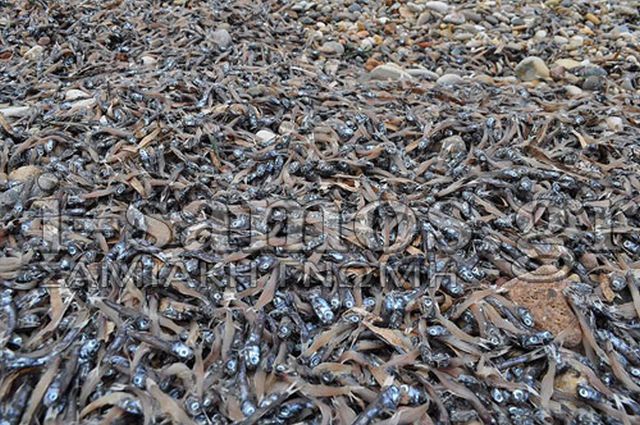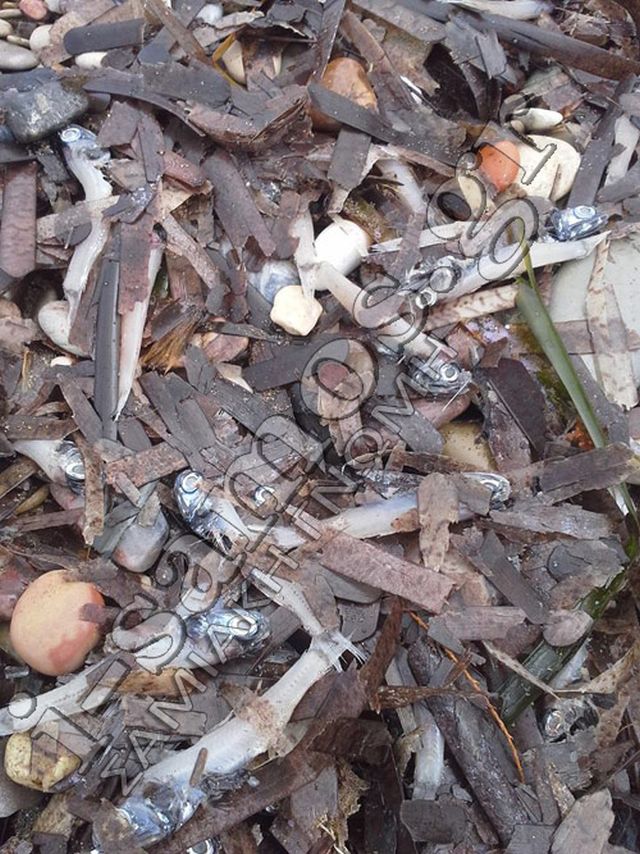Photo: skai.gr
"Unfortunately, this is not the first time that this phenomenon has occurred, nor is it an isolated case. It is common for the area from Mount Athos to Crete," explains Thodoris Tsimbidis, director of the Archipelagos Institute of Marine Conservation.
Employees at the Archipelagos Institute of Marine Conservation think that the reason for the phenomenon is "destructive fishing", as the case concerns fish that are smaller than the minimum size allowed for fishing and are of the same type.

As they say, this is marine fish (probably Sprat that is part of the sardine family and an important food for larger fish and mammals). "As seines are usually used to catch this type of fish, we believe that they were cast by some anglers who usually come from other places and operate in this area. To clarify the situation we have asked the Centre for Fisheries Control to inform us of the geographical traces of these vessels," says Tsimbidis.
He explains that there are anglers who act in a "self-destructive" manner, not considering the stocks of fish and not observing the right tactics, namely to avoid killing fish, smaller than the minimum size allowed for fishing, that are caught in their fishing nets. Anglers in turn say that these fish cannot be caught in the nets they use and look for the reasons elsewhere.

"Continuing offence"
The Coast Guard states that the amount of stranded fish is about 30 kg whereas it is more than 10 tons according to Archipelagos, as a large amount of dead fish usually fall to the bottom in such cases. Thodoris Tsimbidis calls the case a "continuing offence", adding that he had even been threatened. Local anglers are concerned about the future of the fish fauna in the area as well.
The Coast Guard in Karlovasi is carrying out a preliminary investigation of the case, samples have been sent for toxicological analysis and Archipelagos is about to explore the seabed.